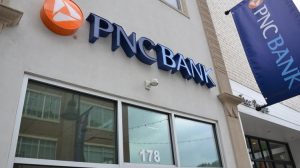The battle between FinTechs and big banks is heating up, with Venmo now accusing PNC Bank of diverting its customers to rival P2P payments company Zelle.
The Wall Street Journal reported that PNC customers have been complaining on Twitter that they are unable to connect their accounts to Venmo, which is owned by PayPal. Instead, the bank has been recommending that its clients switch to Zelle, run by Early Warning Systems, which is owned by various banks, including PNC.
As a result, Venmo is urging PNC customers to launch a social media campaign against the move by tweeting out "Hey @PNCBank…Let me use the financial service apps I need!"
But PNC is defending its actions, saying that it is simply blocking aggregators after it discovered several trying to get around the bank's security system.
"When aggregators access account numbers, many store them indefinitely, often unbeknownst to customers," Karen Larrimer, head of retail banking and chief customer officer at PNC, explained. "This puts customers and their money at risk. We want to make sure we know who is setting up the account."
And Venmo isn’t the only app impacted by the change. PNC revealed that it has also requested that Plaid, as well as other aggregators, make changes to their systems to meet the security requirements. Plaid said it had already worked with the bank to provide the necessary updates. In the meantime, PNC said customers can bypass Plaid and continue to use Venmo by manually entering in their account information. However, that process could take one to two days.
This latest round has put a spotlight on the need for open banking laws in the United States. The legislation already exists in the European Union, where the revised Payment Services Directive (PSD2) demands that banks share customer data with each other via an API. And in the U.K., the Competition and Markets Authority (CMA) requires the country’s biggest banks to have an open banking standard.
“Open Banking will drive more innovation that is good for customers and the financial system— and provide a secure an regulated environment,” Karen Mills, a senior fellow at Harvard Business School and former head of the U.S. Small Business Administration under President Barack Obama, told CNBC.
























